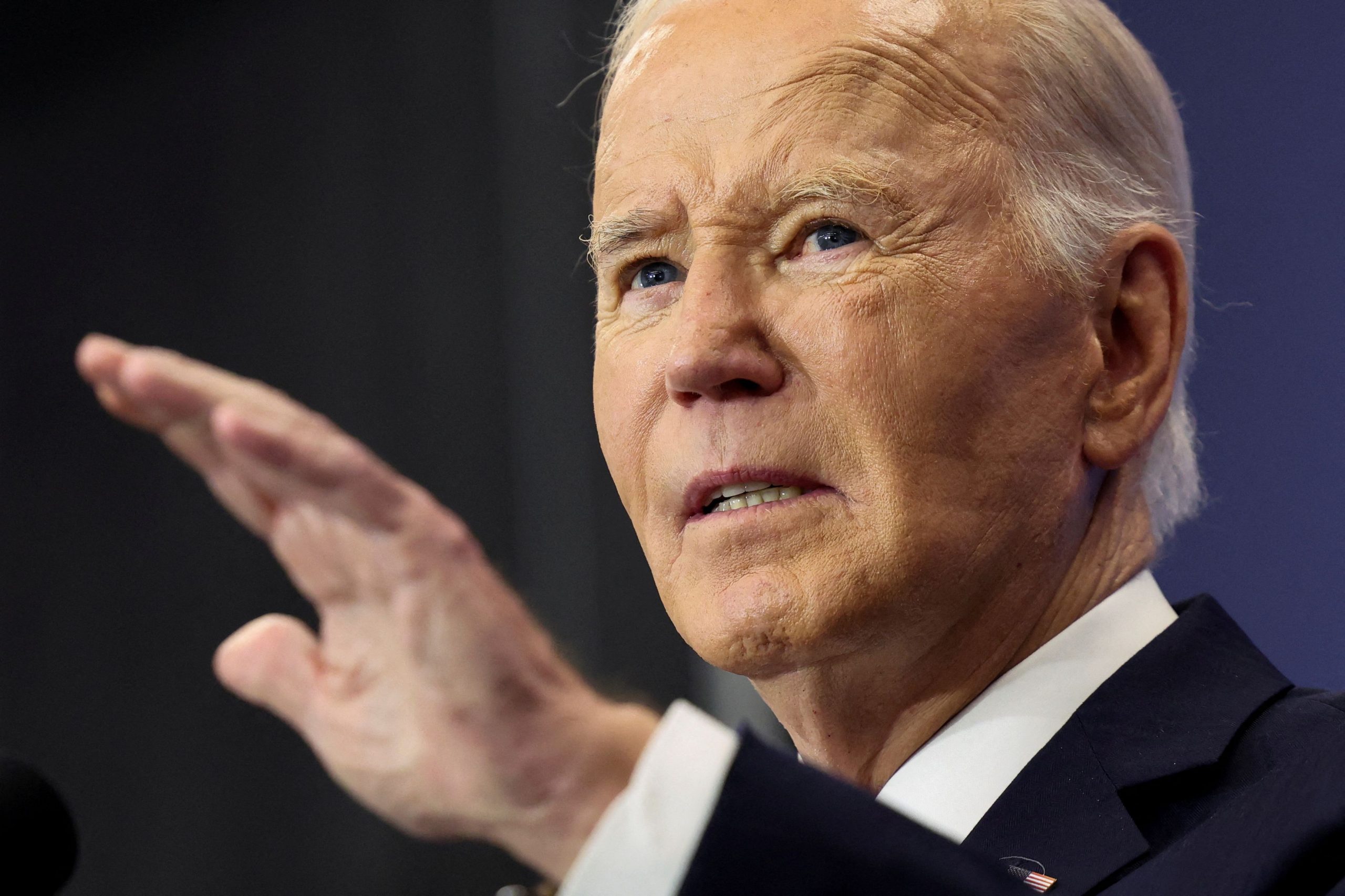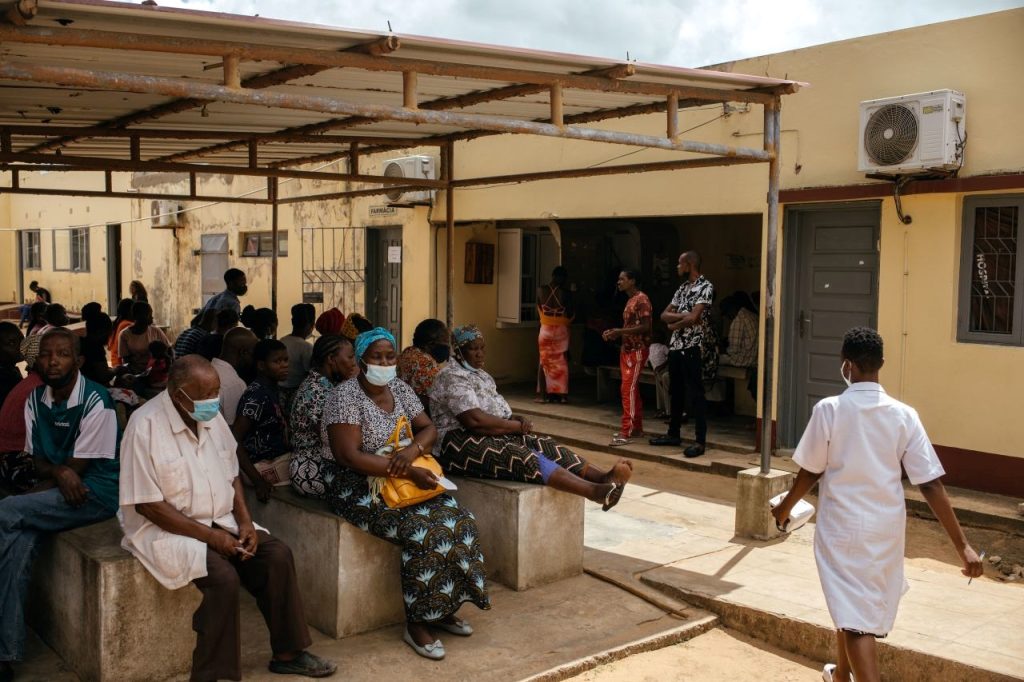The American tradition is that the nation has only one president at a time. Right now, that president looks like Donald Trump —because President Biden is ceding the spotlight.
While Biden remained in Washington, it was the president-elect who met on Saturday in Paris with French President Emmanuel Macron and Ukrainian leader Volodymyr Zelensky , who is lobbying Trump to continue wartime aid.
At the time they met, Damascus was falling to rebels in Syria. While Trump briefly spoke to reporters about Ukraine and posted online about U.S. interests in Syria—saying “this is not our fight”—Biden didn’t make a public appearance on Saturday and waited until Sunday to comment on Syria. The fragility of these two regions in the world has many leaders and businesses on edge.
Trump is already dictating trade and immigration policy and has moved rapidly to remake the U.S. government. He doesn’t take office for six weeks, but many people who had been his fiercest critics in Washington—and the White House—have mostly stood aside.
This has left a number of Democrats perturbed that Biden and party leaders, after spending years casting Trump as a threat to democracy, have left a communications and policy vacuum during the transition period. These critics believe top Democrats have bypassed chances to make the case against nominations by the president-elect that they see as instruments of his promised “retribution.”
“We should be less hobbled and more spurred. We should be vocal, pushing back against these nominees who are nothing but a disaster in the making,” said Washington’s Democratic Gov. Jay Inslee .
Fury from the Democrats’ progressive wing has been even sharper: “This is one of the lamest of lame ducks we’ve seen with a Democratic administration. A massive missed opportunity,” said Usamah Andrabi , spokesman for the progressive group Justice Democrats, who says the consequence is that Trump has grabbed the public’s attention uncontested.
After Trump’s promise to raise tariffs put U.S. neighbors on edge, he dined with Canadian Prime Minister Justin Trudeau at Mar-a-Lago and started diplomacy with Mexico’s president, Claudia Sheinbaum . Trump has named his intended cabinet and senior staff with unusual speed, dominating the news environment and forcing lawmakers to react to several nominations at once, including to some who have prompted even Republicans to flinch.
Biden’s muted presence is a contrast to how President Barack Obama handled Trump’s first election victory in 2016. When Trump, as president-elect, called on the administration to veto a United Nations Security Council resolution criticizing the expansion of Israeli settlements, Obama brushed off the pressure and allowed the measure to pass, while his deputy national-security adviser admonished, “There’s one president at a time.” Obama also held a formal White House press conference after the election, which Biden so far hasn’t done.
To some Democrats, Biden is forfeiting the transition period. They say the vacuum is emblematic of one of the biggest problems the party must face—its inability to drive a consistent, clear message to voters who increasingly get news from social media—as it lays plans for revival after its defeat in the presidential race and loss of its Senate majority.
Biden pardoned his son, Hunter—then left for a trip to Africa rather than pressing his party’s case in person that Trump is presenting a broad threat to the justice system that imperils not just the president’s son but a range of civil servants and Trump’s perceived enemies. (Biden didn’t hold a press conference during his Africa trip, even though U.S. presidents often do hold such briefings during visits abroad.)
When Trump visited the White House after defeating Vice President Kamala Harris , Biden greeted him personally with a polite “welcome back.” The cordiality was intended to show the Democrats’ commitment to continuity of government and democratic norms. Some Democrats hoped he would use the moment to make a public point of urging Trump to respect the independence of the Justice Department and other institutions.
“Most voters don’t know Kash Patel or even who Matt Gaetz or Tulsi Gabbard are,” said Waleed Shahid , a progressive Democratic strategist, referring to Trump’s nominees to lead the Federal Bureau of Investigation and the U.S. spy agencies and the failed effort to install Gaetz as attorney general. “But many more Americans would know, if President Biden spoke about them…The only way to win the war of attention is by going to the voters and explaining things to them, which President Biden has consistently avoided doing.”
Harris, the vice president, vowed in her postelection concession speech to continue “the fight that fueled this campaign,” but she has essentially been silent since then, vacationing in Hawaii and returning to more mundane duties in Washington. Democrats on Capitol Hill have done little to shape voters’ views of the incoming administration. The campaign of Rep. Adam Schiff of California, newly elected to the Senate, this week circulated a newspaper story headlined: “Sen.-elect Adam Schiff doesn’t want to talk about Trump. He wants to talk about the economy.”
A White House spokesman, Andrew Bates , noted that the president had traveled recently to Africa and South America to strengthen international relationships and that the Senate continues to confirm Biden’s judicial nominees. “President Biden is making every day of this term count as he accelerates the implementation of an unprecedented agenda that will benefit hardworking Americans for generations,” he said.
In addition to swiftly assembling a cabinet full of people who are largely loyal to his vision for leading the country, the president-elect appears very focused on following through on many of his campaign promises, including ones that could lead to federal investigations of Democrats next year. Trump said in an NBC interview that aired Sunday that the members of the House committee that investigated the Jan. 6, 2021, riot at the Capitol “should go to jail,” though he also said he wouldn’t direct his cabinet nominees to make arrests.
When asked if Trump would prosecute Biden and his family, the president-elect said: “I’m not looking to go back into the past. I’m looking to make our country successful. Retribution will be through success.”
There are signs that voters have formed a warm impression of Trump’s early moves. A CBS/YouGov poll in late November found that 59% of voters approve of his handling of the transition so far. But other surveys show that many voters don’t have firm opinions of many of the nominees, suggesting there is room for Democrats to shape impressions.
How the party moves forward during a second Trump administration was a major focus for Democratic governors who gathered this weekend in Los Angeles to discuss the aftermath of the 2024 election. The governors said they need to strike a balance—adopting pragmatism in countering Trump policies that conflict with the party’s principles while finding ways to help their states.
“If your values are being attacked, or you’ve got communities or people who are being attacked that don’t deserve it, you’ve got to fight like hell,” said New Jersey Gov. Phil Murphy . “And then over here, you’ve got to have a relationship with the guy.”
“Every diner I go to, it’s the same message: ‘How are you going to make my life more affordable?’” said Rep. Josh Gottheimer (D., N.J.), who recently launched a campaign for New Jersey governor.
To other Democrats, it’s a natural consequence of defeat that Biden and other party leaders would take a more muted posture now and pause in order to develop a considered response to Trump. But even some who urge a deliberative pause say the party could be doing more both to set policy before Biden leaves office and to shape public opinion of the incoming administration.
Making a case against Trump “won’t be done by outraged tweets about the latest things he says but by showing the consequences of his agenda on the middle class,” said Jesse Ferguson , a Democratic strategist. Still, he said, Democrats could tell voters that Trump’s 1.5-point win in the popular vote was relatively narrow. “I do think it’s important to debunk the notion that he has a mandate from the voters, given how close the final result is,” Ferguson said.
The narrow margin of victory in some ways masks the breadth of Trump’s win. He won every swing state and made inroads with Black, Latino and young voters, groups that have traditionally provided solid Democratic support. Some Democrats still appear shellshocked by the election results, in part because they are unsure what message they need to focus on headed into the 2026 midterms and beyond.
Some Democrats and their allies are urging a more muscular use of Biden’s current powers. They are urging him to extend pardons to a range of potential targets of Trump’s new Justice Department, as well as others who they say deserve clemency. Sen. Catherine Cortez-Masto (D., Nev.) wants Biden to provide additional protections to undocumented immigrants vulnerable to deportation.
In the Senate, which will vote on the Trump nominations, most Democrats are stopping short of taking direct shots at the nominees and instead are warning that Trump and his team risk installing flawed candidates because of a faulty vetting process. Democrats control the Senate now, but Republicans will take control of the chamber in early January when Trump’s picks will be up for confirmation votes.
Senate Majority Leader Chuck Schumer (D., N.Y.) last week refrained from directly criticizing Trump’s picks, instead emphasizing the importance of putting nominees through background checks and hearings. But some Democrats are getting worried about Trump’s selections and are coming close to saying that they needed to be voted down.
“It’s not usually something we’re talking about at this point in the process, but given the people that Trump has put forward, it’s very much on everyone’s mind,” said Sen. Elizabeth Warren (D., Mass.).
Write to Aaron Zitner at aaron.zitner@wsj.com and Ken Thomas at ken.thomas@wsj.com



